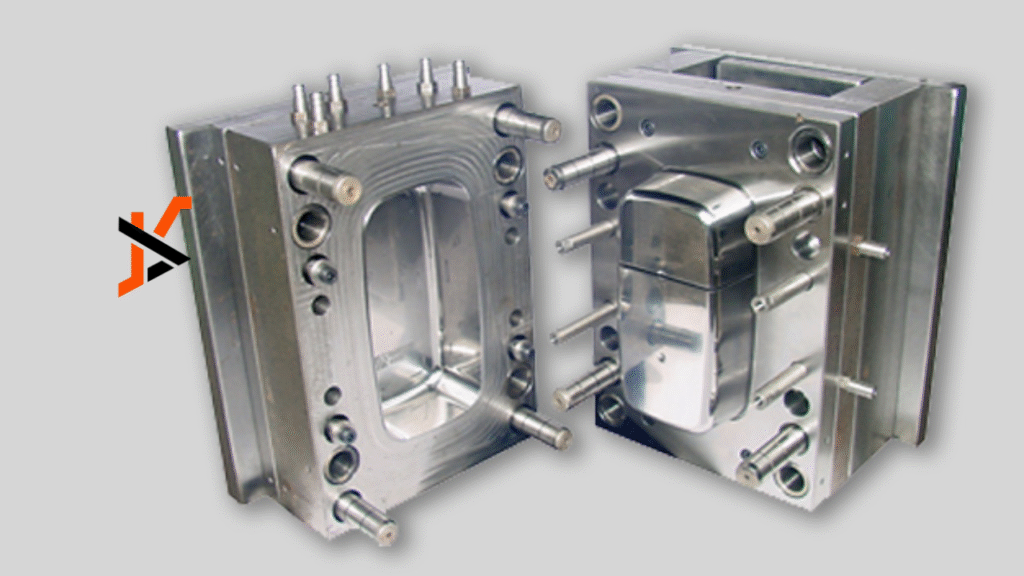Manufacturers across all industries depend on plastic components to maintain efficiency and cost control. Whether it’s for automotive interiors, electronic housings, or consumer appliances, plastic parts form the structural core of modern products. However, without the right expertise, creating these parts can become a time-consuming and complex process.
Professional injection molders simplify this challenge. Through precision, design optimization, and consistent production, they make plastic part manufacturing easier, faster, and more dependable. Their mission is clear — to help companies streamline every stage of production while ensuring quality and reliability.
Design Simplification through Expert Guidance
An experienced injection molder works closely with companies to refine part designs and eliminate unnecessary complexities. The process begins with a review of the client’s 3D model or product concept. Each feature, edge, and thickness is analyzed to detect potential molding challenges.
Through expert recommendations, molders suggest improvements that enhance manufacturability and material flow. Adjusting wall thickness, gate locations, and draft angles allows parts to release smoothly from molds and reduces the likelihood of defects. Read more
A simpler, optimized design translates into faster cycle times and lower production costs. With a skilled molder acting as an extension of the design team, companies can prevent repeated prototypes or costly tooling modifications. Early collaboration ensures efficient production and stress-free project execution.
Material Selection Made Simple
Choosing the right plastic material is one of the most critical decisions in part manufacturing. Injection molders bring valuable expertise in understanding how different resins behave under heat, pressure, and flow.
They guide companies in selecting materials that balance durability, flexibility, and cost-effectiveness. For example, a part exposed to sunlight may need a UV-resistant polymer, while medical components require biocompatible resins. Molders often recommend thermoplastics such as ABS, polypropylene, nylon, or polycarbonate, and may suggest specific resin blends or additives to enhance performance.
By choosing the correct material from the start, companies avoid problems such as warping, cracking, or early wear. The right guidance ensures that every part meets its intended application requirements efficiently and affordably.
Precision Tooling for Reliable Results
The mold is the foundation of every successful plastic part. Injection molders invest heavily in high-precision tooling to ensure that every component produced maintains consistent shape, dimensions, and surface finish.
Using advanced technologies like CNC machining and EDM (Electrical Discharge Machining), molders create tools that match exact part geometries and meet specific production volume needs.
- Steel molds are ideal for high-volume production runs, offering durability and long lifespan.
- Aluminum molds suit smaller batches, providing a cost-effective solution for limited runs.
Regular mold maintenance guarantees smooth operation and consistent results over time. With dependable tooling, companies receive uniform parts every cycle — minimizing waste, downtime, and delays.
Process Optimization for Faster Production
Injection molders continuously refine their production processes to save time and cost. They carefully adjust parameters such as temperature, pressure, and cooling rate to achieve maximum efficiency and quality.
Automation plays a significant role in this stage. Robotic systems often handle repetitive tasks like part removal or assembly, ensuring speed and consistency. Once optimal process settings are established, they are documented for future runs — guaranteeing repeatable performance.
This proactive approach leads to shorter lead times, steady output, and improved scheduling accuracy. By eliminating unnecessary interruptions, molders help companies maintain predictable and efficient production cycles.
How Injection Molders Simplify Operations
Professional injection molders go beyond just making parts — they provide end-to-end manufacturing support.
- Single-source production: Design, tooling, and molding services are managed under one roof.
- Prototyping assistance: Trial runs validate part design before full-scale production.
- Material traceability: Each resin batch is tracked for quality and compliance.
- Reduced material waste: Efficient molding processes minimize scrap.
- Automation integration: Robots and sensors improve precision and speed.
- Rigorous quality checks: Dimensional and visual inspections ensure part accuracy.
- Inventory management: Some molders offer storage and on-demand shipping.
- Technical guidance: Clients receive cost-saving insights for design and tooling.
- Detailed documentation: Every job includes comprehensive production records.
- Sustainability practices: Many molders use recycled materials and energy-efficient systems.
Each of these factors simplifies operations and strengthens production reliability. Partnering with a molder that offers full-service capabilities helps companies gain better control over timelines, budgets, and outcomes.
Quality Control That Prevents Rework
Consistent quality is essential in plastic part manufacturing. Injection molders maintain strict quality assurance measures throughout every production stage. From raw material inspection to final part validation, each step is carefully monitored.
Molders use advanced equipment — including coordinate measuring machines (CMMs) and automated vision systems — to verify part dimensions and accuracy. Early detection of defects prevents wasted resources and rework.
Regular calibration of equipment and maintenance of molds ensure parts stay within tolerance, even over long production runs. With this level of precision, companies experience fewer defects, smoother assemblies, and reduced warranty claims.
Reliable quality control transforms production into a consistent, cost-effective process, giving businesses peace of mind and confidence in their supply chain.
Conclusion
Injection molders play a vital role in making plastic part manufacturing simpler, more efficient, and more reliable. From design refinement and material selection to tooling precision and process optimization, their expertise turns complex production challenges into smooth, predictable workflows.
By partnering with a professional injection molder, companies gain not just a supplier but a strategic manufacturing partner — one focused on quality, efficiency, and long-term success.








